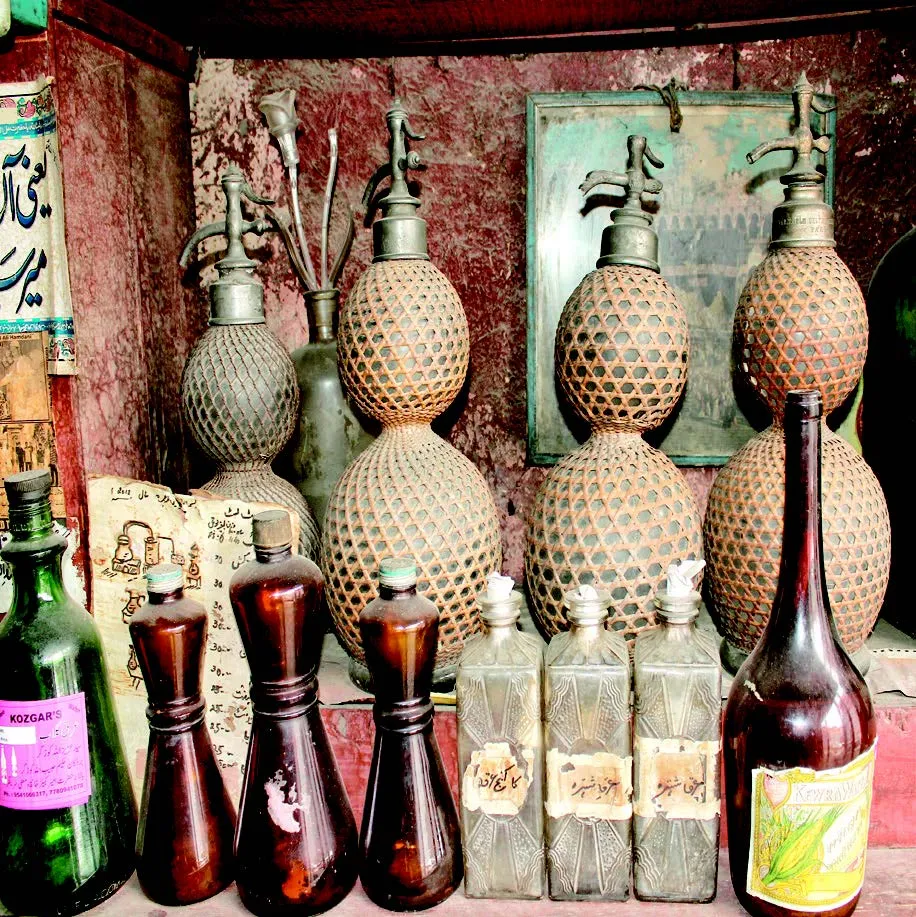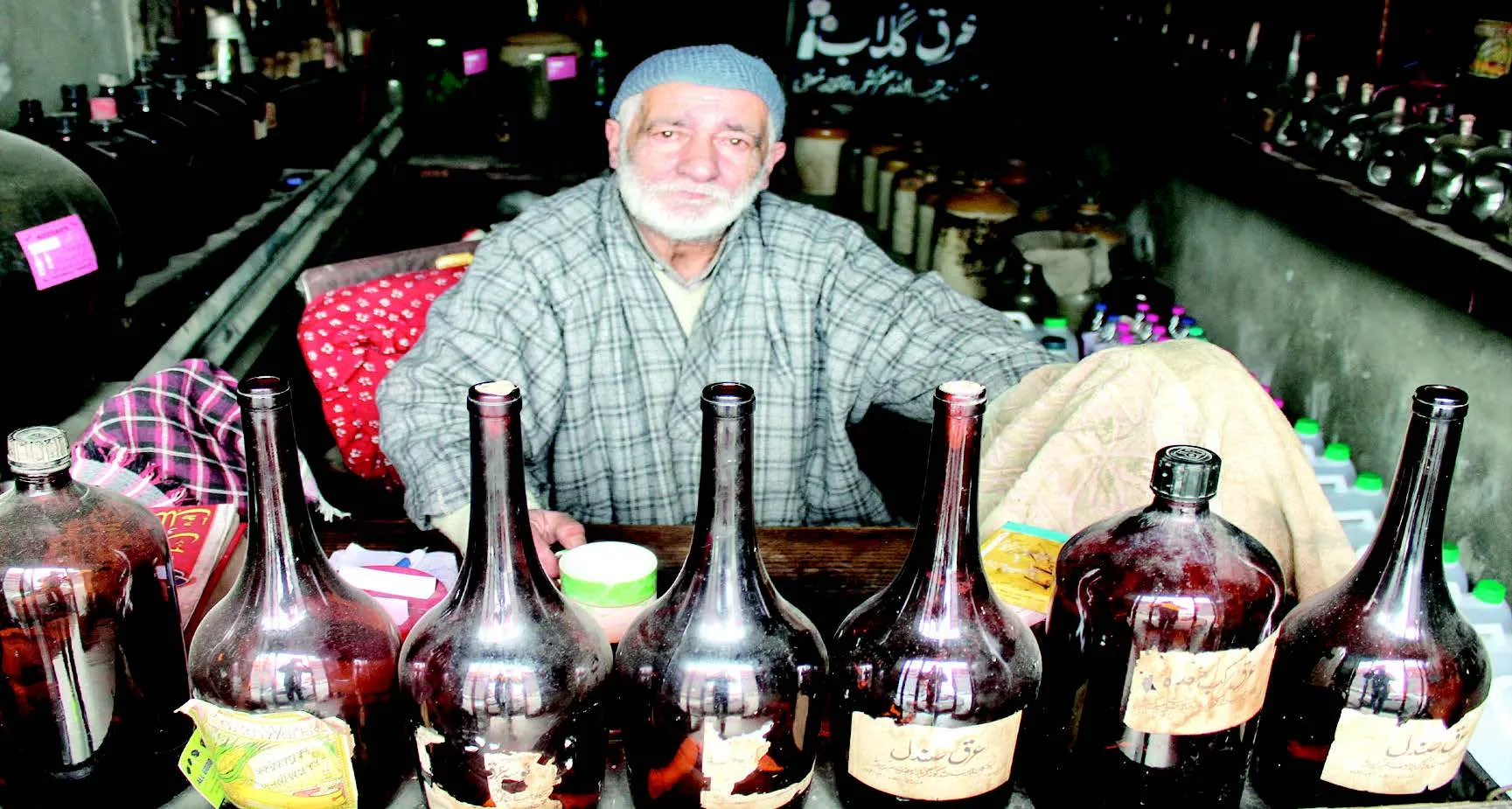Srinagar, Mar 3: In the dense maze of Downtown Srinagar, stands a small unassuming shop that is Kashmir’s last remaining link to 500-year-old tradition— the art of distilling delicate rose water.
Arq-I-Gulab Waan, a family-owned rose water distillery located near the iconic Khanqah-e-Moula shrine, has been producing floral water since the times of medieval Kashmir. Using handmade copper vessels and traditional distillation techniques, the shop lends Srinagar its signature rosy aroma that wafts through its busy streets.
“My ancestors started this business over five centuries ago. I am proud to carry forward this legacy as the fourth-generation owner,” says 66-year-old Aziz Ahmad Kozgar, proprietor of Kashmir’s lone Arq-Gulab Waan.

Despite modern concrete buildings sprouting around it, Arq-I-Gulab Waan uses traditional methods to distil several litres of rose water each day.
Aziz manually fills up plastic bottles with the precious distillate. “We do not use any labels or markings on our packaging. The beautiful fragrance speaks for itself,” he says, as he breathes in the heady scent of nearby sacks full of fragrant roses.
The floral water finds its way into Kashmiri homes and festivals, used in cuisine, religious ceremonies and cosmetics. “Our rose water connects people to the cultural heritage of the Valley. I have seen tourists from India and across the world come just to experience its pure aroma,” Aziz says.
As Srinagar is gradually taking leaps into modernity, this ancient rose water distillery stands as a living monument to Kashmir’s past—filling its present with the timeless scent of roses.
Inside the shop, made of wood and bricks, there are shelves filled with dark-coloured glass bottles and old-fashioned jars of different sizes. These bottles and jars have handwritten notes in Urdu and Persian stuck on them.
“I have been making and selling rose water since I was a child. Some of the bottles in the shop are over 300 years old and have collected dust over time. There are also bottles from England, Paris, and other foreign countries. I want to preserve them to remember my ancestors,” he added.
Kozgar’s rose water is traditionally used to sprinkle on worshippers in masjids, shrines, temples, and gurdwaras, as well as during weddings. It is also added to many dishes while cooking to add aroma, used in refreshing drinks, and sprinkled on handkerchiefs on hot summer days.
“The rose water is made from Kashmiri roses called Koshur Gulab, which are sourced from different parts of Kashmir.” He makes the rose water by hand without using any machines. He does not want to share the skills and techniques he uses to make it.
Kozgar, an expert in making rose water in Kashmir, explains that rose petals and other herbs are boiled in a big copper pot. The steam goes through coils, cools down, and becomes liquid again, turning into rose water. This traditional process usually takes three to four hours.
“I didn’t change anything in my ancestors’ shop. I want to keep it just like they did,” he says. He believes it’s important to preserve the shop’s history and heritage for future generations to appreciate.
As Aziz Kozgar nears retirement age, the fate of Arq-e-Gulab Waan distillery has been secured by the next generation. Aziz beams with pride as he watches his son Wasim Ullah extend a helping hand at the shop.. “Wasim has learnt the secrets of rose water-making from me since he was a young boy. My heart fills with joy knowing Wasim is passionate about continuing our family legacy long after I am gone,” says Kozgar.
With the heir to Arq-e-Gulab Waan’s ancient knowledge ready, Kashmir’s iconic scent seems destined to continue perfuming its streets for generations to come.






